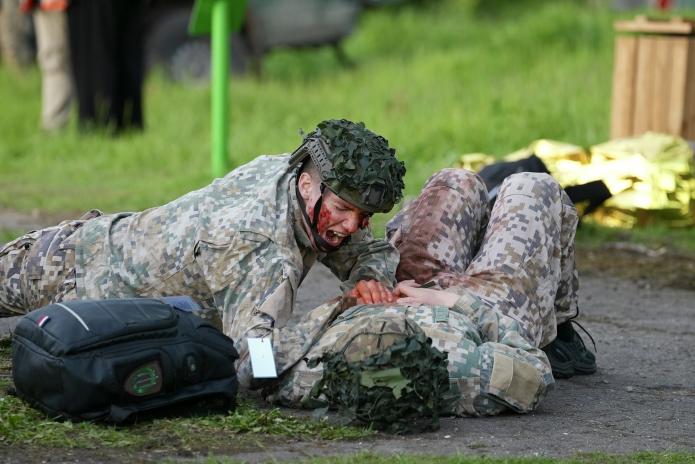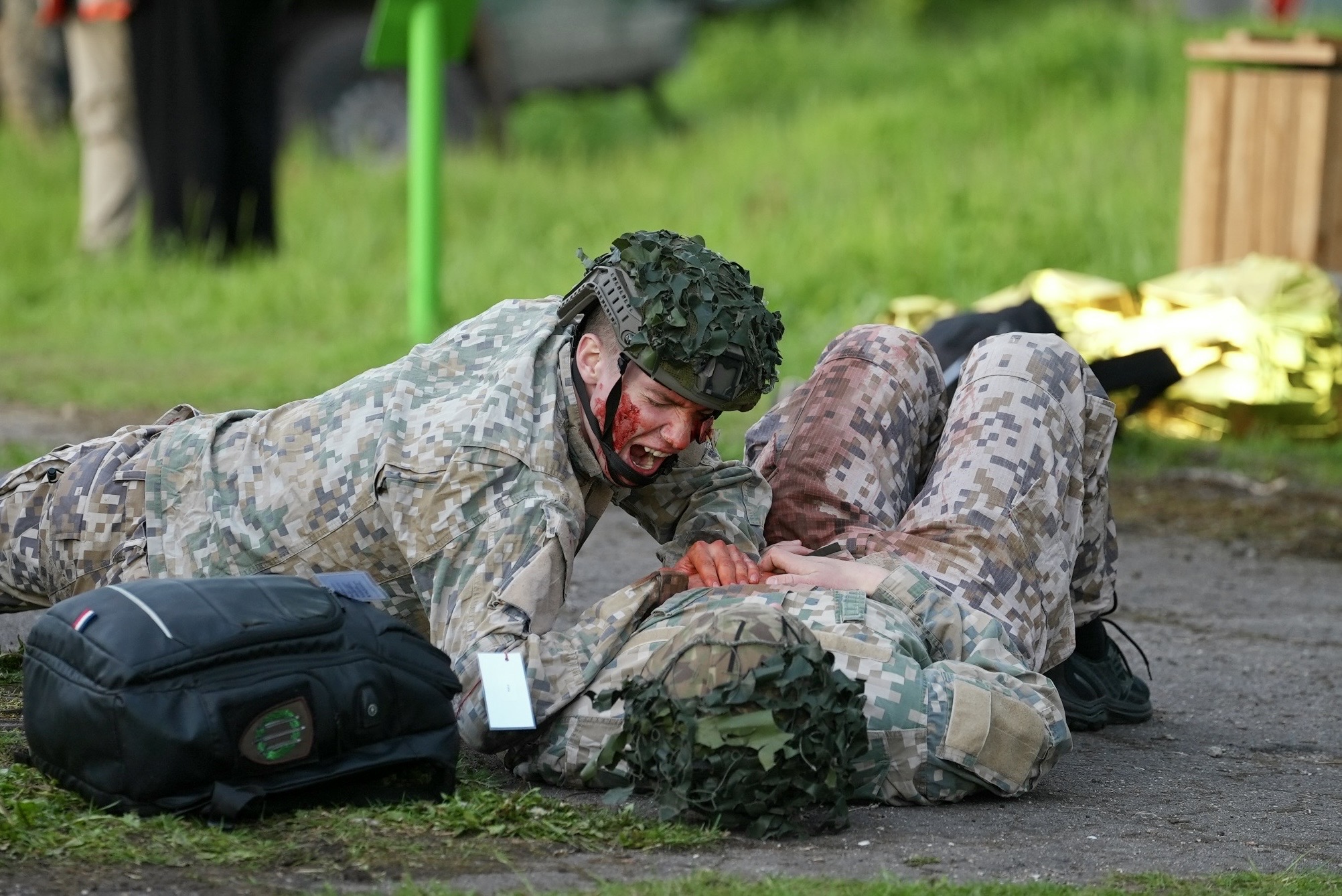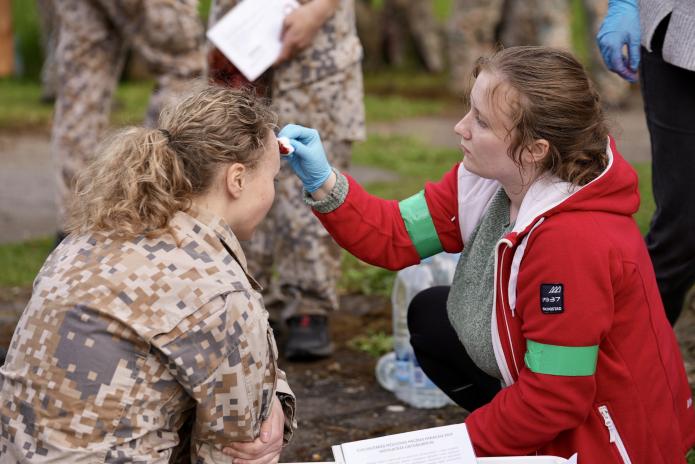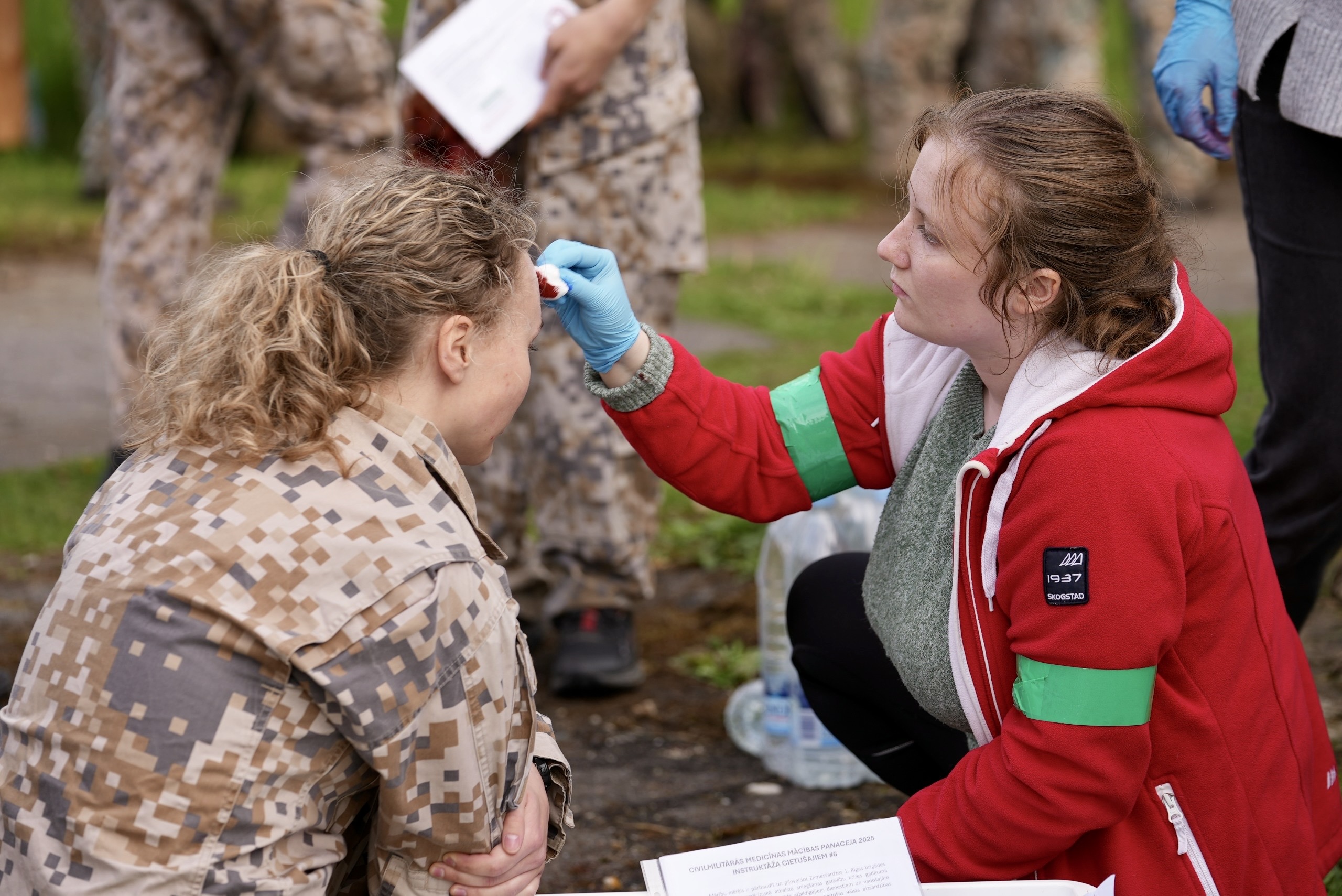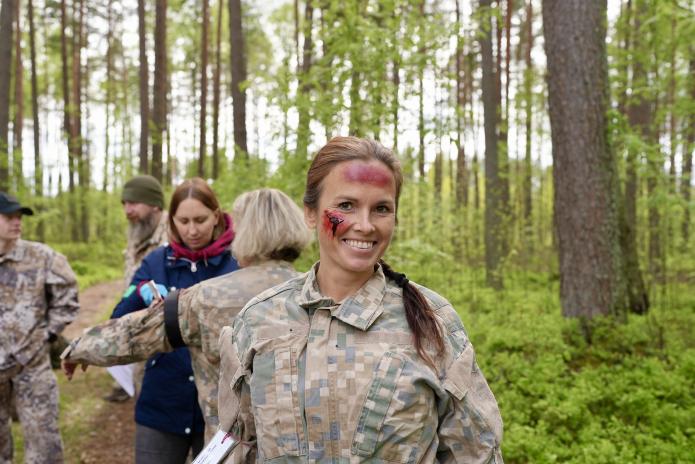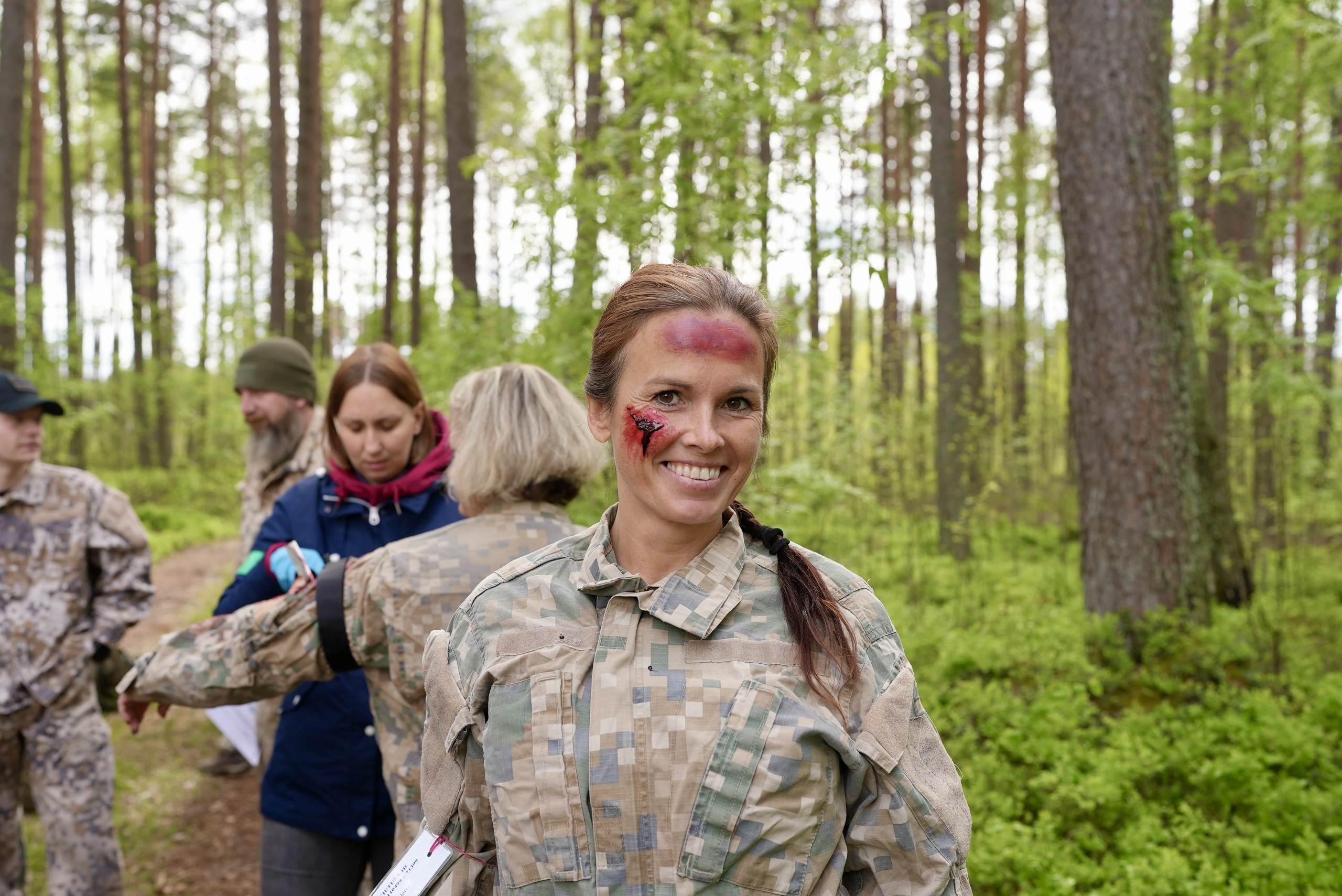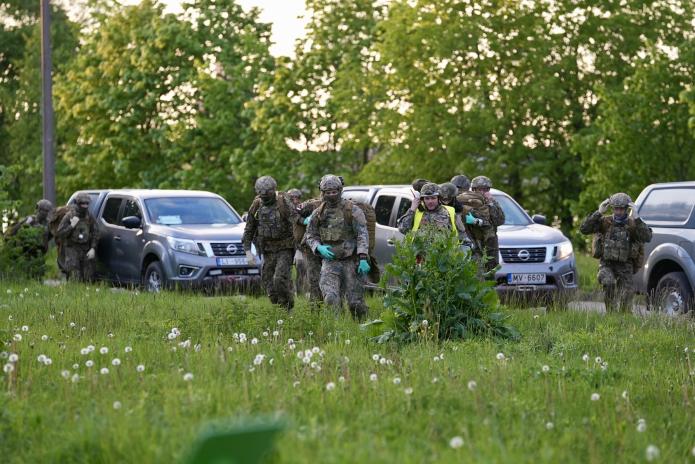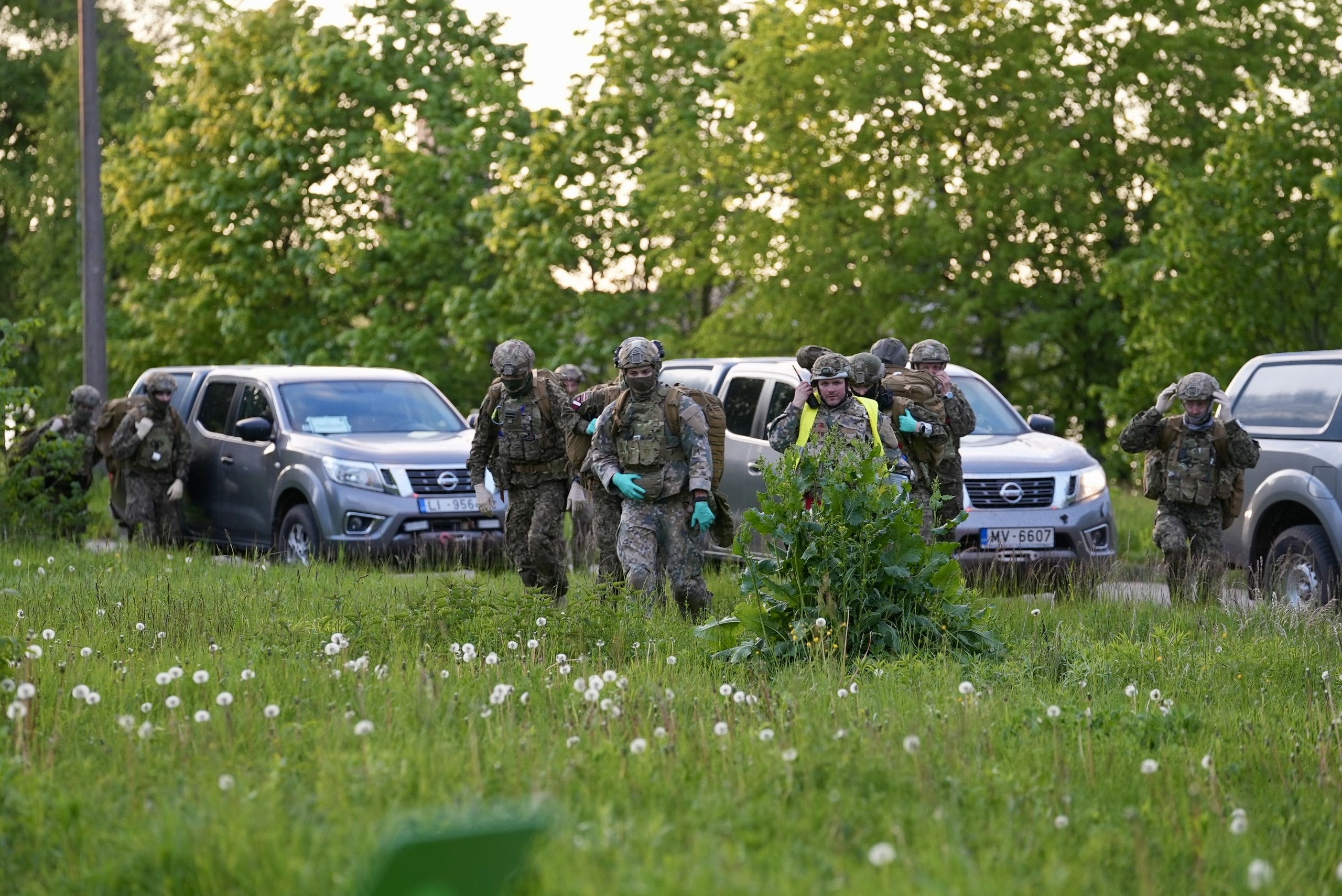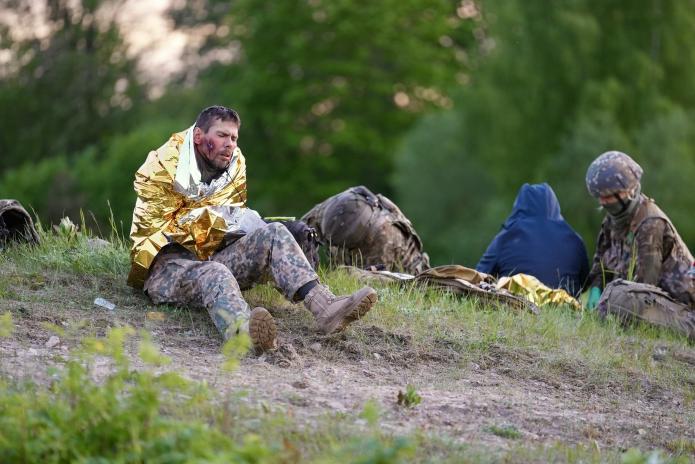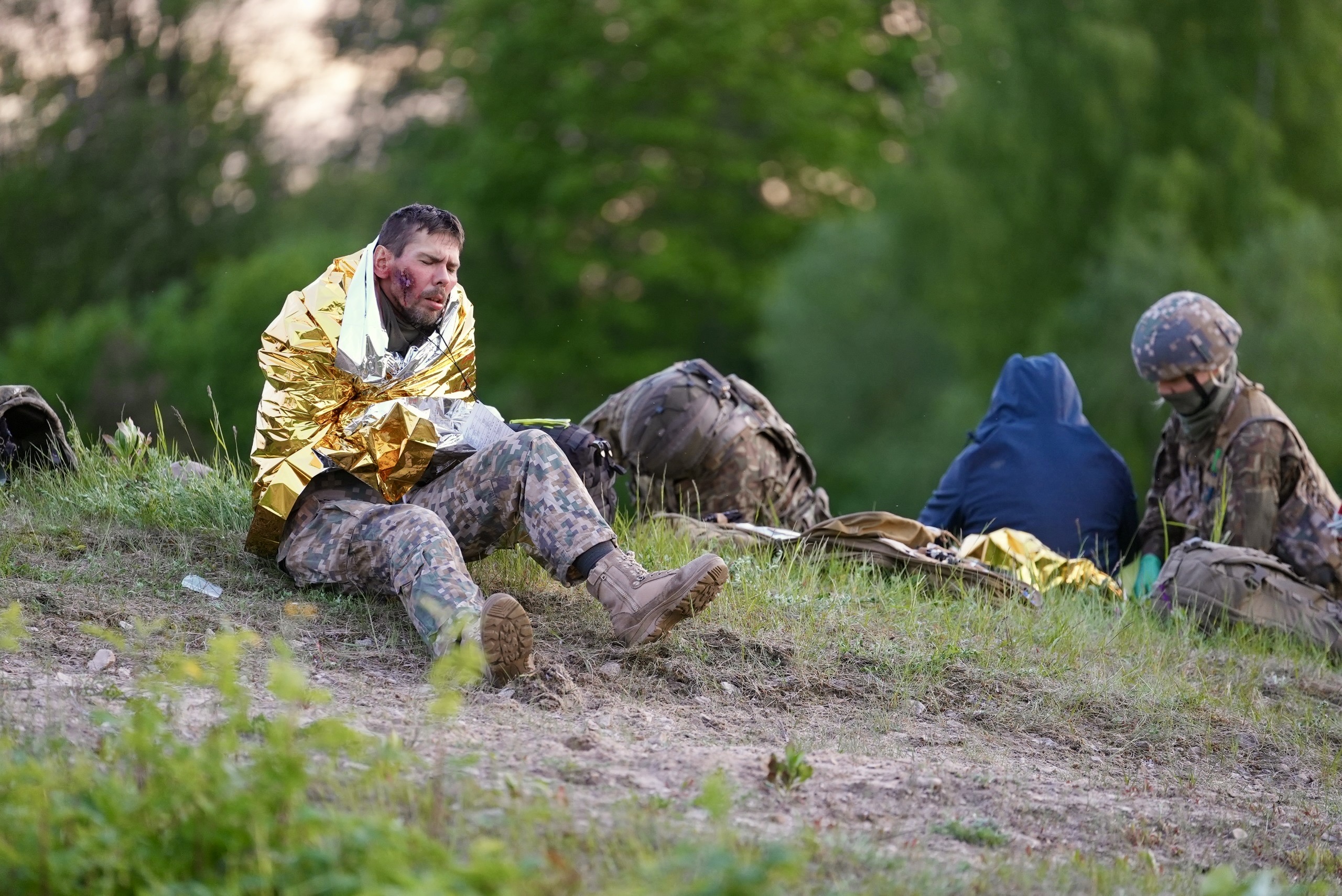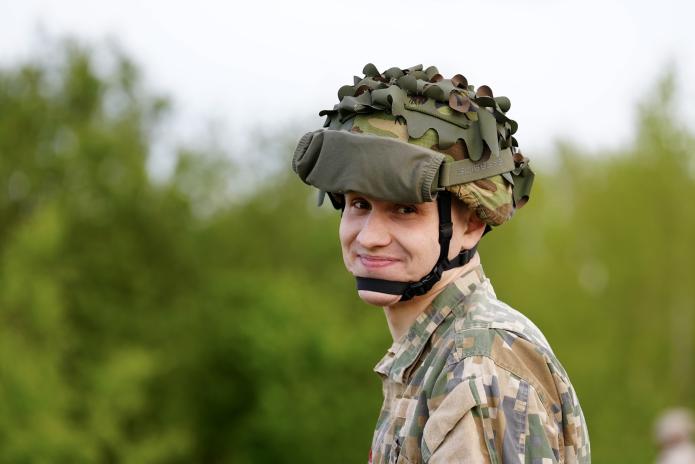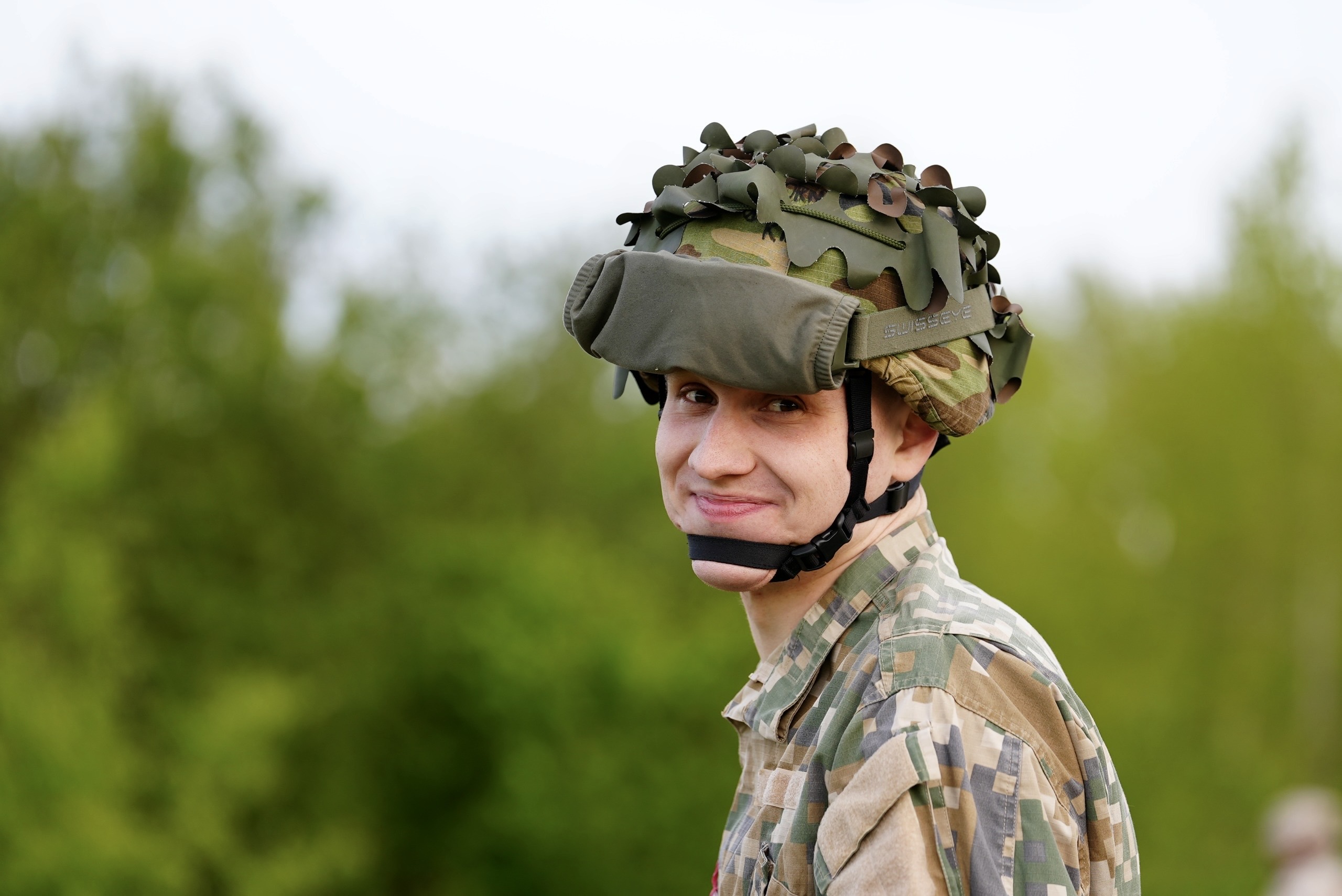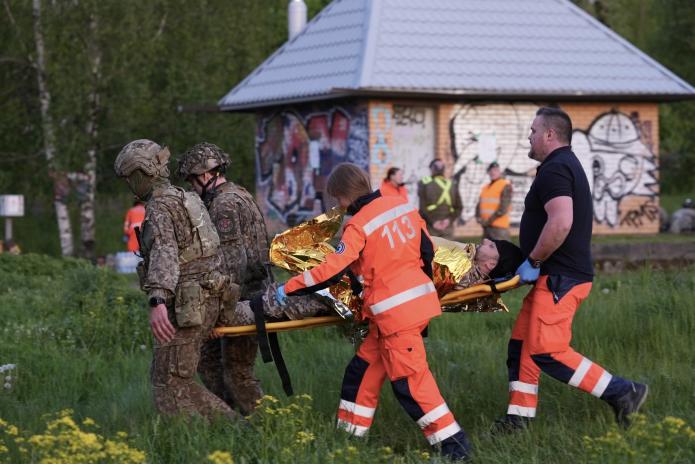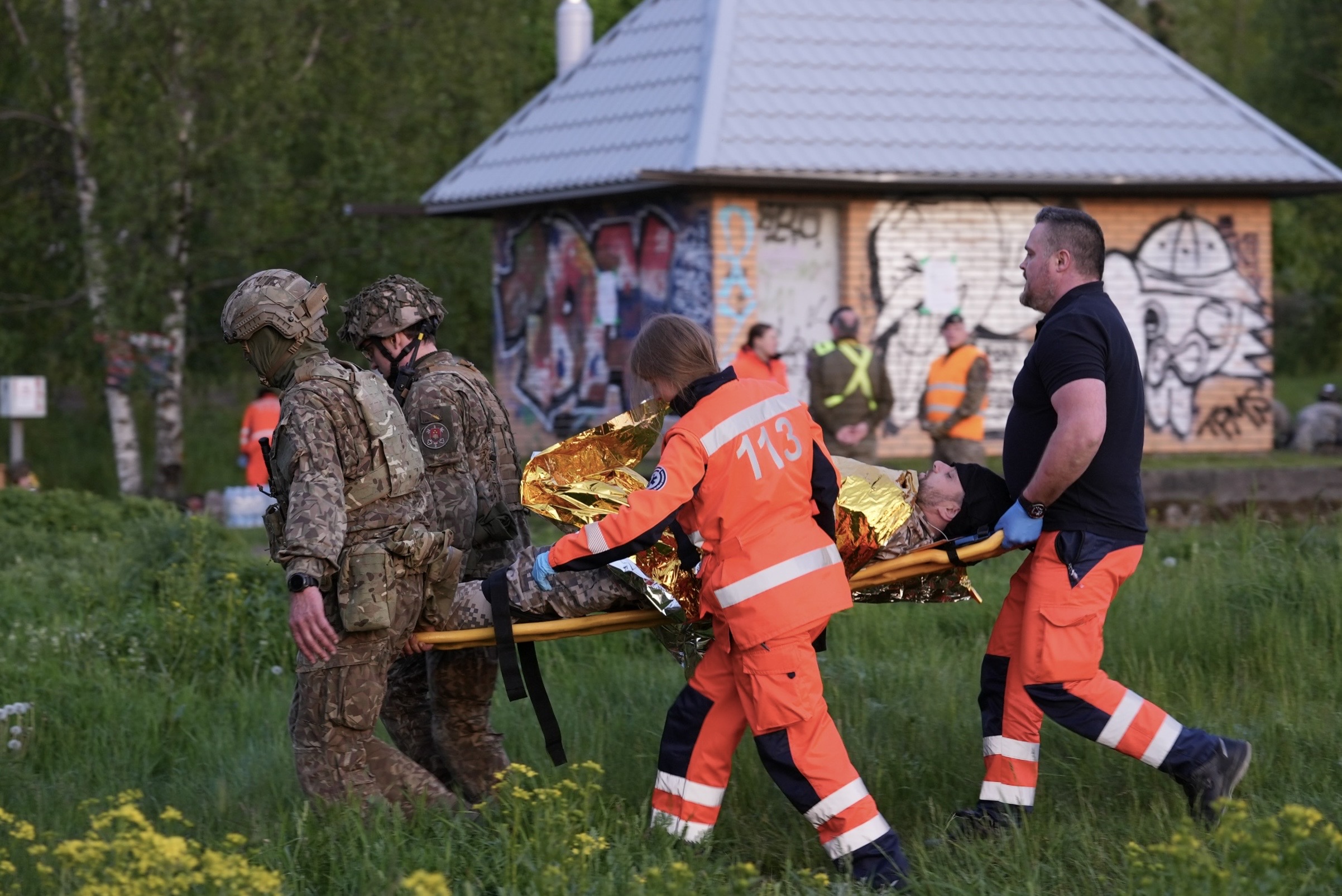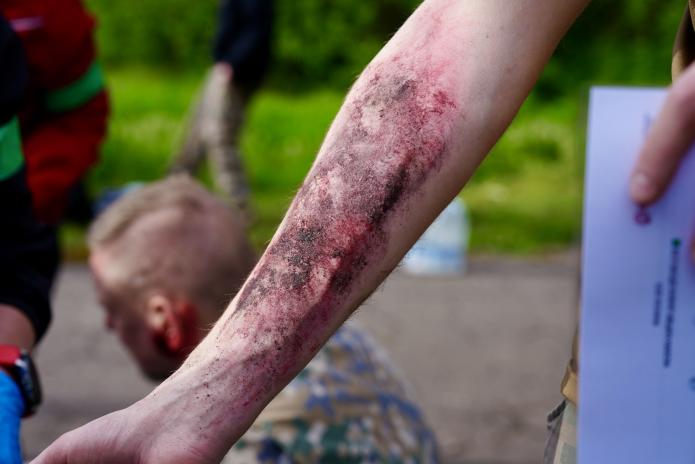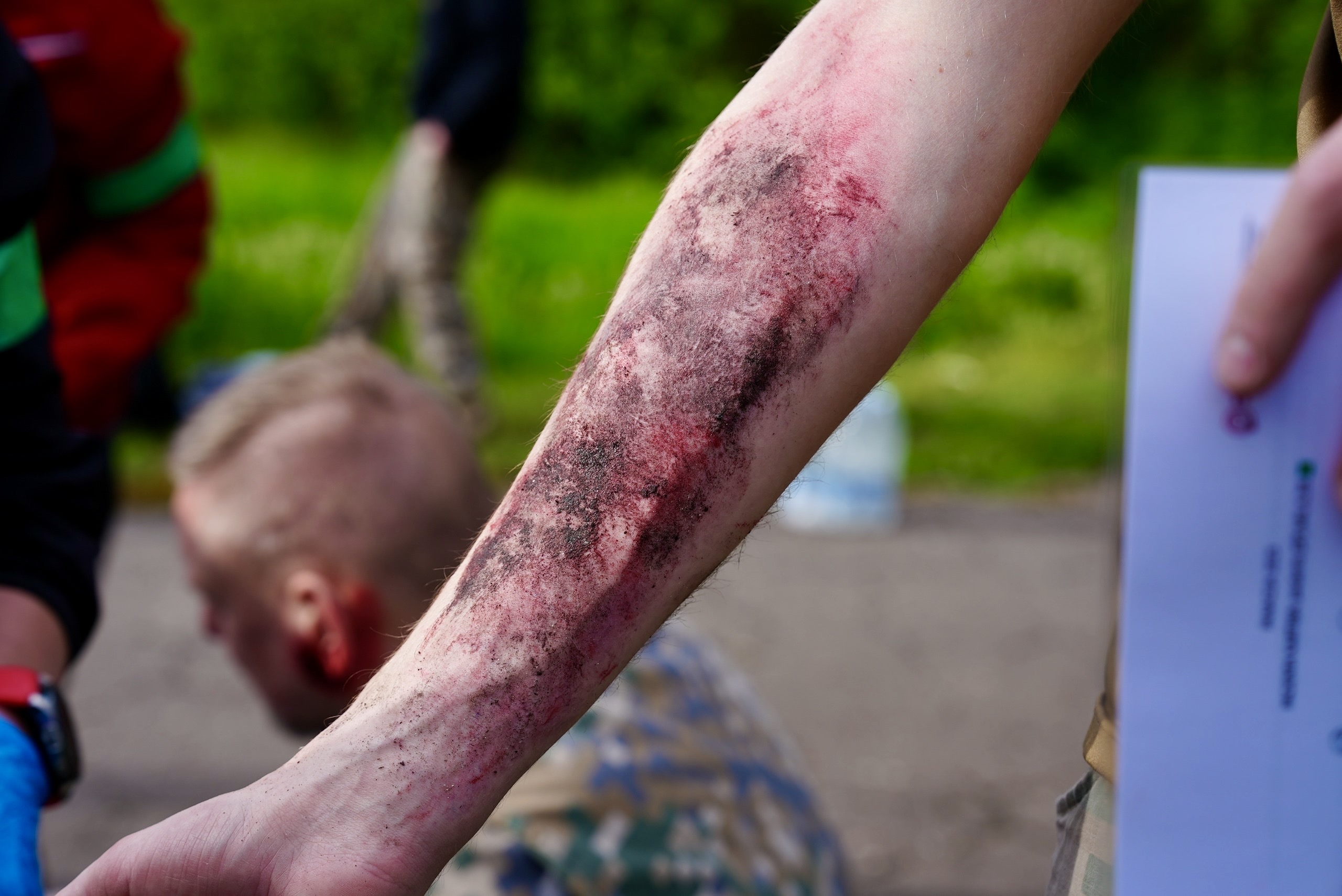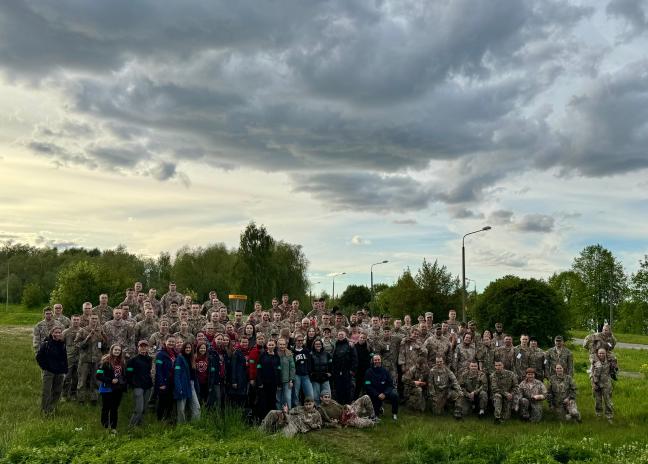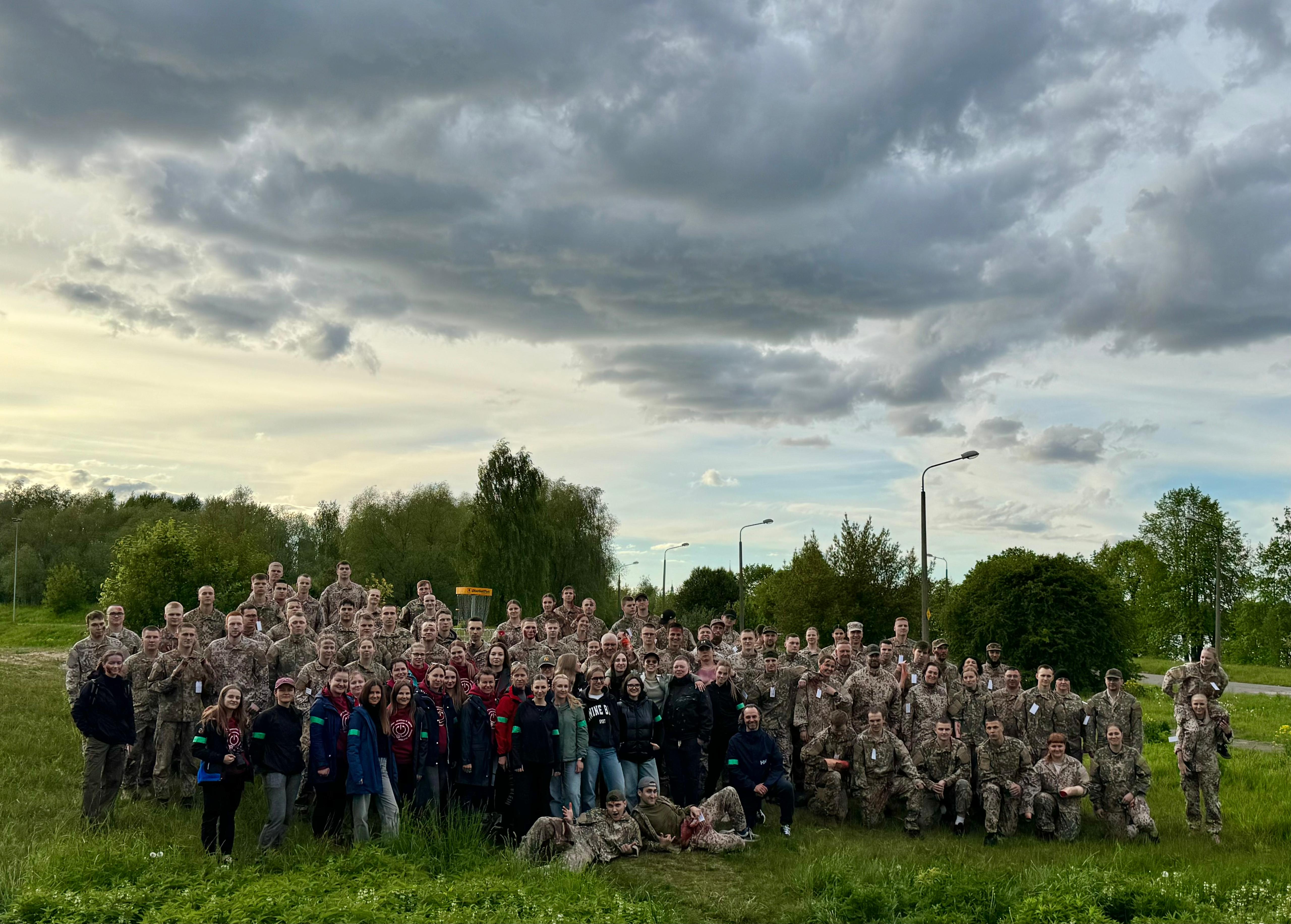Panaceja 2025 – METC simulation solutions strengthen the state’s readiness for crisis situations
On Friday, 23 May, the civil-military medical exercise Panaceja 2025 took place in Riga, its surroundings, Bauska, and Jūrmala, with active involvement of the Rīga Stradiņš University Medical Education Technology Centre (RSU METC). The goal of this exercise was to test and improve the ability to effectively collaborate in crisis situations, ensuring coordinated and efficient medical assistance to victims within the framework of comprehensive national defence.
Wide-scale cooperation on a national level
The principal organiser of the exercise, the 1st Riga Brigade of the National Guard, successfully created a highly realistic simulation environment that accurately reflected conditions of a real crisis situation in close collaboration with the RSU METC. The exercise provided an opportunity for the Emergency Medical Service, the State Fire and Rescue Service, the State Police, the Riga Municipal Police, the Riga East University Hospital (RAKUS), Pauls Stradiņš Clinical University Hospital, the Jūrmala Hospital, the Bauska Hospital, the Hospital of Traumatology and Orthopaedics, and the Riga 2nd Hospital to test their professional competence, response capabilities, and inter-institutional cooperation in crisis scenarios.
The 1st Riga Brigade of the National Guard organises exercises like this every other year, each time supplementing it with new challenges and expanding both the range of participating partners and the level of coordination among the responsible services.
Colonel Normunds Baranovs, Commander of the 1st Riga Brigade, emphasises: ‘The ability to effectively cooperate during a crisis is crucial. We highly value the involvement and professionalism of our civilian partners.
Most importantly, it is essential to build relationships based on trust and understand the role of each party within the overall chain of assistance. This is what saves lives in real situations.’
Mass casualty incidents and other realistic exercises
This year, the Panaceja 2025 exercise included seven simulated incidents of different scales, including two mass casualty events involving 70 and 100 simulated victims. The scenarios included large-scale accident simulations, where patient evacuation took place under particularly complicated circumstances, testing the readiness and limits of civilian and military medical capabilities. Participants trained their skills in joint resource management, information exchange, and the application of standardised medical procedures to ensure a continuous and coordinated chain of patient care from the site of the incident to the medical facility.
RSU METC creates an environment where mistakes become lessons
To ensure that participants might exercise under conditions as close to reality as possible, the team from RSU METC prepared 250 simulated casualties, each assigned an individual role, instructions for behaviour, a scenario and progression of a certain injury. Using silicone wounds, mock-ups, artificial blood, make-up, and SimMan mannequins, METC staff recreated a wide range of injuries - from gunshot and stab wounds to head trauma, shrapnel wounds, limb amputations and burns.
Mārtiņš Ļuļļa, METC Engineer and Head of Simulation Technology Development, explains: ‘Organising the exercise is always a major challenge.
This kind of work requires exceptional precision and creativity - the injuries must look realistic enough while still allowing for appropriate medical care to be taken: fixing foreign objects, swabbing gunshot wounds, bandaging, or even simulated surgical interventions such as spleen removal or bowel suturing.’
The engineering team’s contribution to the training was highly significant – they developed technically complex and visually accurate solutions aligned with the latest trends and allowing to adapt quickly to changing and unpredictable exercise conditions.
METC also provided victim simulation scenarios from the incident site to ROLE1 and ROLE2 stages to medical facilities, thereby supporting targeted training throughout the entire chain of medical assistance. Andreta Slavinska, the RSU METC Acting Director, notes: ‘In real crisis situations, timing, precision, and teamwork are crucial - these are the elements that Panaceja 2025 is designed to train intensively in a safe, controlled environment, integrating both technologically and methodologically sound simulation-based learning solutions.’
Preparedness that strengthens national security
Panaceja 2025 reaffirms that comprehensive national defence is not possible without effective cooperation among military, civilian, and medical institutions. This exercise is a major step towards a safer, more resilient, and better-prepared society in the face of potential future threats.
Related news
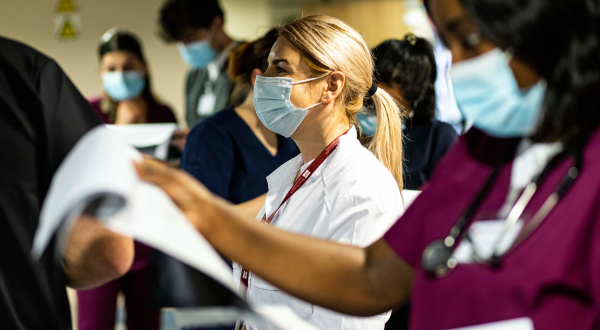 Learning from mistakes – RSU Faculty of Medicine launches reporting system to improve patient safety in clinical placementsAktualitātes
Learning from mistakes – RSU Faculty of Medicine launches reporting system to improve patient safety in clinical placementsAktualitātes